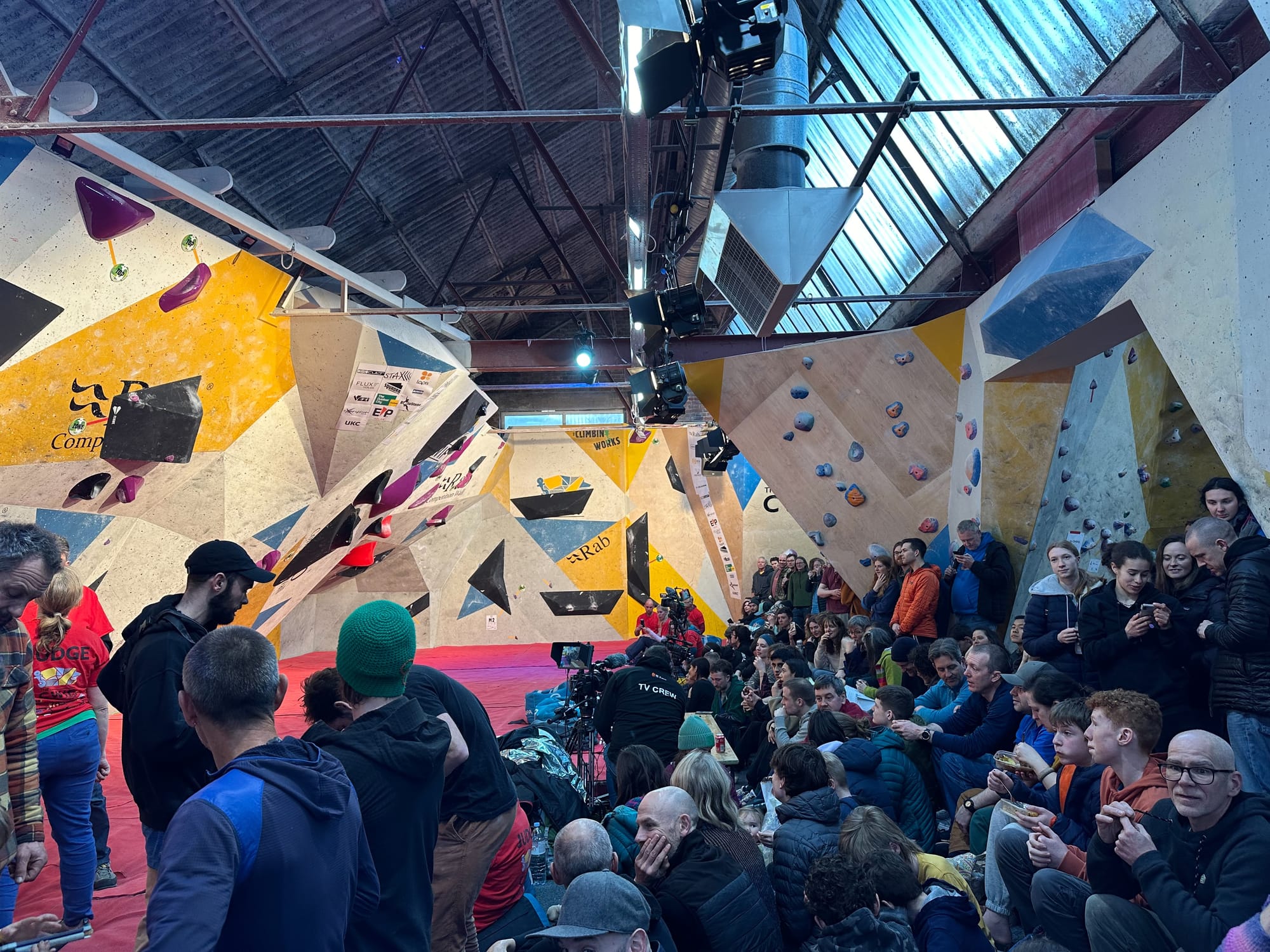Jenya Kazbekova and Yannick Flohé won the 2024 Climbing Works International Festival (CWIF) bouldering competition last night in Sheffield, UK.
Kazbekova flashed every boulder in the final, completing each on her first attempt, winning ahead of Holly Toothil by one less attempt to top. Lucy Garlick, who won the qualification round, topped three boulders to finish third. Kazbekova’s win is her third on her third attempt after finishing third in 2022 and second in 2023.
Flohé was the only climber to top three boulders within the time limit. Max Milne was the only athlete to reach the zone on the second final’s “cartwheel” problem, but he topped out after the buzzer. His two flashes on the third and fourth boulder were enough to finish second. Alexander Megos finished third, the only other athlete to top a boulder in a difficult final with only six tops.

The highlight of the evening was the men’s second boulder set by GB Climbing headsetter Max Ayrton, which “revolved” around athletes doing a cartwheel between four large black volumes arranged in a square.
Jack MacDougall was the first climber on the boulder and went straight into the cartwheel, getting a big cheer from the crowd. Flohé got close to completing the cartwheel, but he could not quite bring his left foot where his right hand was to complete the cartwheel. Milne was the only athlete to complete the cartwheel to reach the zone. On his last attempt, he would time out, but he did top the boulder after the buzzer.
The other men’s boulders were also entertaining. The first revolved around climbing on deep mono-pockets created between two volumes. Both German athletes, Flohé and Megos, flashed the problem. Milne would fall, jumping for the final hold on his last attempt.
The third boulder was on the steepest part of the wall, on flat, small crimps that looked like bar codes. Both Flohé and Milne floated up the boulder on their first attempts.
The final boulder was a coordination boulder, which Flohé worked out on his third attempt while Milne flashed the problem. It was a hard set of problems with only 6 tops across all 6 finalists, below the average of 12 tops per final in IFSC World Cups.
The women’s problems were more straightforward, starting on a slab with hand and footholds only half a centimetre large than the screw securing them to the wall. The second problem was in the steepest section of the wall, where there was a tricky move to the top hold in compression. The third was the easiest, with a straightforward jump. Every athlete would top the boulder. The final boulder looked trickier than it was. Every athlete topped it.
Daiki Sano completed all 30 qualification boulders (ranging in difficulty from Font 5+ to 8B) on his first attempt, and he was the only athlete to do so. He finished 6th in the final, still enjoying himself and smiling while climbing. After the final was over, he continued to climb, finishing off the second and fourth boulders.





